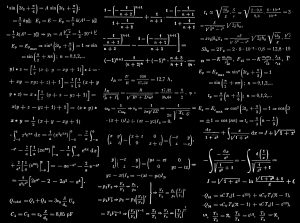The Power of Mental Math: Mastering Arithmetic with Abacus

Introduction
Are you a parent concerned about your child’s struggles with mathematics? Do you find yourself searching for effective ways to improve their arithmetic skills and overall mathematical aptitude? Look no further! In this article, we will explore the powerful role that abacus learning plays in developing mental math proficiency in children. By equipping your child with the skills to perform calculations quickly and accurately in their head, abacus training can transform their mathematical capabilities and unlock their true potential.
The Need for Mental Math in Today’s World
In today’s fast-paced world, the ability to perform mental calculations quickly has become an invaluable skill. Whether it is calculating a restaurant bill, estimating the cost of groceries, or solving mathematical problems during exams, mental math allows individuals to navigate everyday situations with ease and confidence. However, many children struggle with arithmetic fluency due to the traditional methods used to teach mathematics in schools. This is where the abacus comes into play.
What is an Abacus?
The abacus is an ancient tool that has been used for centuries to perform calculations. It consists of rows of beads on rods or wires, with each bead representing a specific value. By manipulating the beads, children can visualize and solve mathematical problems. Abacus learning goes beyond rote memorization and focuses on developing mental visualization skills.
Mechanisms of Abacus Training
Mental Visualization:
Abacus training involves visualizing the movement of beads to perform calculations mentally. This transition from physical manipulation to cognitive processes enhances spatial reasoning, working memory, and attention span. Mental visualization plays a crucial role in developing strong mental math abilities.
Brain Activation:
Neuroimaging studies have shown increased activity in brain regions responsible for numerical processing among children trained in abacus techniques. This suggests that abacus learning improves mathematical cognition and problem-solving capabilities.
Structured Learning:
Abacus training follows a systematic approach that helps children understand number patterns and relationships. This structured learning enables them to solve complex problems efficiently. By mastering arithmetic operators and developing mental strategies, children gain a strong foundation for advanced mathematical concepts.
The Benefits of Abacus Training
Improved Arithmetic Fluency:
Children trained in abacus techniques outperform their peers in addition, subtraction, multiplication, and division due to their enhanced speed and accuracy. Abacus training helps children develop a deep understanding of number concepts, leading to improved arithmetic fluency.
Holistic Development:
The cognitive skills developed through abacus training, such as memory retention, focus, and analytical thinking, positively impact other subjects like science and language arts. The ability to visualize numbers and manipulate them mentally enhances overall cognitive development.
Boosted Confidence and Self-esteem:
Mastery of mental math through abacus training boosts children’s confidence and self-esteem. As they become proficient in performing calculations mentally, they gain a sense of accomplishment and are more likely to tackle challenges across various disciplines.
Enhanced Problem-solving Skills:
Abacus learning fosters analytical thinking and problem-solving skills in children. By breaking down complex problems into smaller components, children learn to think critically and devise effective strategies to arrive at solutions.
A Competitive Advantage:
Completing an abacus training program provides children with a competitive edge over their peers in exams and future competitive tests. The ability to perform mental calculations quickly gives them an advantage in time-sensitive scenarios.
Arithmetic Syllabus: Aligning with School Curriculum
One common concern among parents is whether abacus training aligns with the school curriculum. Rest assured, abacus learning complements and enhances the arithmetic syllabus taught in schools. The structured approach of abacus training helps children strengthen their foundational understanding of arithmetic operators and number concepts. As they progress through the program, they develop the skills required to excel in their regular math classes.
The Role of Abacus in Parental Support
As a parent, you play a crucial role in supporting your child’s learning journey. Here are some tips to help you make the most of abacus training:
Encourage regular practice:
Consistency is key when it comes to developing mental math skills. Encourage your child to practice regularly, even for short durations. Set aside dedicated time each day for abacus practice, ensuring it becomes a part of their routine.
Celebrate small victories:
Acknowledge and celebrate your child’s progress along the way. Recognize their efforts and achievements, no matter how small. This positive reinforcement motivates them to continue their learning journey with enthusiasm.
Engage in mental math activities:
Incorporate mental math activities into your daily life. For example, while grocery shopping, ask your child to estimate the total cost of items or mentally calculate the change they will receive. These real-life applications reinforce their mental math skills and make learning fun.
Stay involved:
Stay involved in your child’s learning process by interacting with their abacus teacher and discussing their progress. This collaboration ensures that you are aware of their strengths and areas for improvement, allowing you to provide targeted support.
Summary of Key Benefits
|
Benefit |
Description |
|---|---|
|
Improves Calculation Speed |
Enhances rapid processing of numerical information, boosting confidence. |
|
Enhances Memory Power |
Strengthens retention through repetitive visualization of bead movements. |
|
Builds Logical Thinking |
Encourages systematic analysis and problem-solving skills. |
|
Promotes Focus and Concentration |
Requires attentiveness, extending attention spans for other tasks. |
|
Boosts Creativity and Visualization |
Fosters mental representation skills applicable beyond mathematics. |
Summing Up
Abacus training is a transformative educational tool that enhances arithmetic fluency and fosters broader cognitive development in children. By developing strong mental math abilities through structured learning and visualization techniques, children gain not only a competitive advantage but also improved confidence, analytical thinking skills, and overall academic performance. Abacus learning aligns with the school curriculum and equips children with the skills required to excel in mathematics. So, embrace the power of mental math and unlock your child’s mathematical potential!
At SIP Abacus India, we offer world-class skill development programs that aim to unlock the mental potential of children through fun learning methodologies. Our programs focus on developing skills in mathematics and overall cognitive development. Using the abacus tool and visualization techniques, we help children develop strong mental math abilities from ages 6-12. Our curriculum is divided into Junior, Foundation, Advanced, and Grand Master modules, ensuring structured learning at every level. Classes are small and interactive, allowing for personalized attention and engagement. Join SIP Abacus today and give your child the gift of mental math proficiency!



